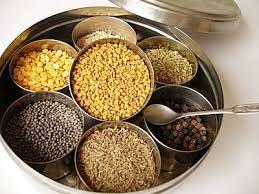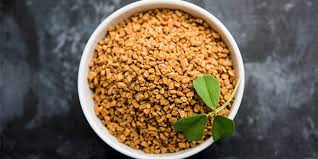Fenugreek scientifically called Uluva. Uluva is a common ingredient often used in Indian recipes. The seeds are used as a spice and the dried leaves are used as a herb. Fenugreek is cuboid-shaped and the colour is yellow. In India, Fenugreek is used both whole and powdered form. Fenugreek is used in many dishes like fish curry, sambar, pickles, idli and dosa batter. The taste of Fenugreek is slightly bitter. To add flavour and to reduce the bitterness, Fenugreek is heated before use.

Fenugreek has many health benefits. It is rich in fiber and minerals. It is good for the treatment of diabetes. Fenugreek has many home remedies. The paste of Fenugreek is good for hair growth and reduce dandruff. Fenugreek is added in pickles as a preservative. tea made with Fenugreek is good for fever. Fenugreek is used in Ayurvedic medicines since many years. The sprouts of Fenugreek is used as food stabilizer and food emulsifier. Germinated Fenugreek is used as a natural antioxidant.
In India, the cultivation of Fenugreek is done in regions like Tamil Nadu, Rajasthan, Gujarat, Madhya Pradesh. India is one of the major producer of Fenugreek.
Fenugreek Health Benefits
The health benefits of Fenugreek Seeds are endless.
- Fenugreek controls diabetes and lowers the levels of blood sugar.
- Fenugreek can reduce the cholesterol and triglyceride levels
- Fenugreek reduces the risk of cancer, high blood pressure, inflammation.
- Fenugreek increases the production of breast milk when nursing.
- Fenugreek can boost testosterone levels in men
- Fenugreek is rich in vitamins such as thiamin, riboflavin, niacin.
- Fenugreek is good for skin problems
- Fenugreek is good for menstrual cramps
- Fenugreek reduces the risk of bacterial, fungal, and viral infections
- Fenugreek improves weight loss
- Fenugreek aids digestion
- Fenugreek reduces the risk of heart conditions
What other health benefits does it have?
Fenugreek seeds are a rich source of vitamins, minerals vitamins, minerals and antioxidants, which help protect the body’s cells from damage caused by unstable molecules known as free radicals.
For centuries they have been (and are still) used by nursing mothers to help stimulate the production of breast milk during pregnancy, and following childbirth. Due to their powerful antiviral properties, they are also commonly used as an herbal remedy for colds and sore throats.
In addition, researchers believe fenugreek seeds may be effective in the treatment of arthritis, high cholesterol, skin problems (wounds, rashes and boils), bronchitis, abscesses, hair loss, constipation, upset stomach, kidney ailments, heartbur, male impotence and other types of sexual dysfunction.
How does it affect diabetes?
Fenugreek seeds (trigonella foenum graecum) are high in soluble fibre, which helps lower blood sugar by slowing down digestion and absorption of carbohydrates. This suggests they may be effective in treating people with diabetes.
Multiple studies have been carried out to investigate the potential anti-diabetic benefits of fenugreek.
In one study, researchers in India found that adding 100 grams of defatted fenugreek seed powder to the daily diet of patients with insulin-dependent (type 1) diabetes significantly reduced their fasting blood glucose levels, improved glucose tolerance and also lowered total cholesterol, LDL or ‘bad’ cholesterol and triglycerides.
In another controlled trial, incorporating 15 grams of powdered fenugreek seed into a meal eaten by people with type 2 diabetes reduced the rise in post-meal blood glucose, while a separate study found that taking 2.5 grams of fenugreek twice a day for three months lowered blood sugar levels in people with mild, but not severe, type 2 diabetes.
